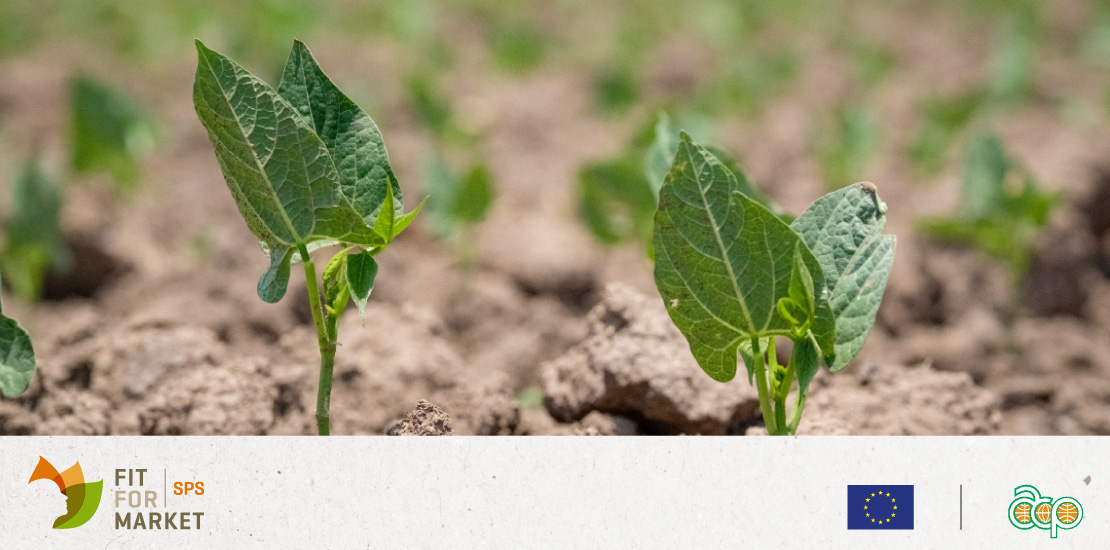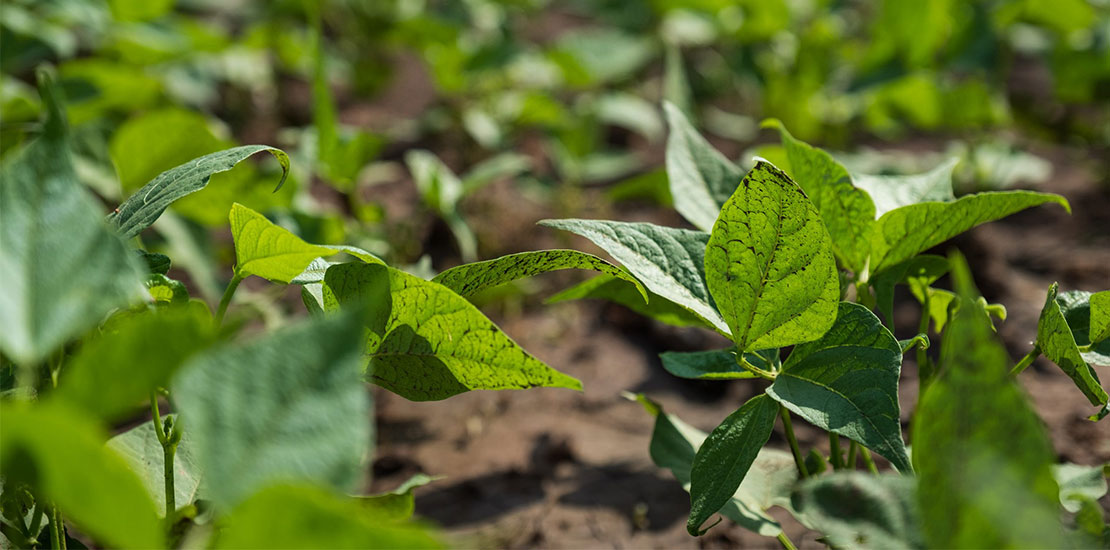Change of maximum residue limits (MRLs) from the CODEX ALIMENTARIUS
- 27/02/2023
- Posted by: Gaetan Dermien
- Category: ACP EN, News
No Comments A review of key Codex MRL changes in 2021-2022 Every year, the use of many plant protection products is affected by changes to permitted Maximum Residue Limits (MRLs). As a result of COVID, the 2020 review of MRLs by the CODEX committee on pesticide residue did not take place. In 2021, MRLs were changed for 68 active substances and recently published in the CODEX Pesticide MRL database. These changes often have a direct impact on producers who may need to… +
A review of key Codex MRL changes in 2021-2022 Every year, the use of many plant protection products is affected by changes to permitted Maximum Residue Limits (MRLs). As a result of COVID, the 2020 review of MRLs by the CODEX committee on pesticide residue did not take place. In 2021, MRLs were changed for 68 active substances and recently published in the CODEX Pesticide MRL database. These changes often have a direct impact on producers who may need to… +Update on EU MRL changes – April 2022
- 12/04/2022
- Posted by: Gaetan Dermien
- Category: ACP EN, News
 Changes to EU pesticide maximum residue levels Since the start of 2022, we have been highlighting significant changes to EU MRLs that affect 23 active substances, 9 of which are important for ACP export horticulture. The European Commission has also recently notified the World Trade Organization (WTO) of some additional proposed changes involving a further 5 substances, including 1 that is key for ACP horticulture (hexythiazox). How will ACP producers/exporters be affected? Changes to EU Maximum Residue Limits (MRLs) also… +
Changes to EU pesticide maximum residue levels Since the start of 2022, we have been highlighting significant changes to EU MRLs that affect 23 active substances, 9 of which are important for ACP export horticulture. The European Commission has also recently notified the World Trade Organization (WTO) of some additional proposed changes involving a further 5 substances, including 1 that is key for ACP horticulture (hexythiazox). How will ACP producers/exporters be affected? Changes to EU Maximum Residue Limits (MRLs) also… +Update on EU MRL changes
- 15/12/2021
- Posted by: Gaetan Dermien
- Category: Africa, Angola, Belize, Benin, Botswana, Burkina Faso, Burundi, Cameroon, Cape Verde, Caribbean, Central African Republic, Chad, Comoros, Cook Islands, Côte d'Ivoire, Country, Democratic Republic Of The Congo, Djibouti, Dominica, Dominican Republic, Equatorial Guinea, Eritrea, Eswatini, Ethiopia, Fiji, Gabon, Gambia, Ghana, Guinea, Guinea-Bissau, Headline, Jamaica, Kenya, Kiribati, Lesotho, Liberia, Malawi, Mali, Mauritania, Mauritius, Mozambique, Namibia, News, Niger, Nigeria, Pacific, Papua New Guinea, Republic of the Congo, Saint Kitts and Nevis, Saint Lucia, Saint Vincent and the Grenadines, Sao Tome and Principe, Senegal, Sierra Leone, Sudan, Suriname, Tanzania, Timor-Leste, Togo, Tonga, Trinidad and Tobago, Tuvalu, Uganda, Vanuatu, Zambia, Zimbabwe
 Key points Since the start of 2021, there have been European Union (EU) maximum residue level (MRL) changes concerning 123 plant protection products (PPPs), compared with 59 in 2020. These changes refer to modifications to the previous regulation, and can be either an increase or lowering of the MRLs for certain foods. Since the latest Flash Info in August 2021, there have been changes to 40 PPPs, 13 of which are key for ACP horticulture (acrinathrin, ametoctradin, spinetoram, fludioxonil, fosetyl-aluminium,… +
Key points Since the start of 2021, there have been European Union (EU) maximum residue level (MRL) changes concerning 123 plant protection products (PPPs), compared with 59 in 2020. These changes refer to modifications to the previous regulation, and can be either an increase or lowering of the MRLs for certain foods. Since the latest Flash Info in August 2021, there have been changes to 40 PPPs, 13 of which are key for ACP horticulture (acrinathrin, ametoctradin, spinetoram, fludioxonil, fosetyl-aluminium,… +EU MRL changes for 83 PPPs in 2021
- 26/08/2021
- Posted by: Gaetan Dermien
- Category: Africa, Angola, Antigua and Barbuda, Australia, Bahamas, Barbados, Belgium, Belize, Benin, Botswana, Burkina Faso, Burundi, Cameroon, Cape Verde, Caribbean, Central African Republic, Chad, Comoros, Cook Islands, Côte d'Ivoire, Country, Democratic Republic Of The Congo, Djibouti, Dominica, Dominican Republic, Equatorial Guinea, Eritrea, Eswatini, Ethiopia, Faroe Islands, Federated States of Micronesia, Fiji, France, Gabon, Gambia, Germany, Ghana, Greece, Grenada, Guinea, Guinea-Bissau, Guyana, Haiti, Hungary, Ireland, Italy, Jamaica, Kenya, Kiribati, Liberia, Luxembourg, Madagascar, Malawi, Mali, Marshall Islands, Mauritania, Mauritius, Mozambique, Namibia, Nauru, Netherlands, News, Niger, Nigeria, Niue, Pacific, Papua New Guinea, Poland, Portugal, Republic of the Congo, Rwanda, Saint Kitts and Nevis, Saint Lucia, Saint Vincent and the Grenadines, Samoa, Sao Tome and Principe, Senegal, Seychelles, Sierra Leone, Solomon Islands, Somalia, Spain, Suriname, Tanzania, Timor-Leste, Togo, Tonga, Trinidad and Tobago, Tuvalu, Uganda, Vanuatu, Zambia, Zimbabwe
 Key points Since the start of 2021, European Union (EU) maximum residue level (MRL) changes concerned 83 plant protection products (PPPs; 59 in 2020). These changes refer to modifications compared to the previous regulation, and can be either an increase or lowering of the MRLs for certain foods.COLEACP identified 27 key substances used in African, Caribbean and Pacific (ACP) horticulture that are affected by these changes. For 10 of the substances (ametoctradin, bupirimate, chlorothalonil, dimethoate, ethoprophos, myclobutanil, propiconazole, pyraclostrobin spinetoram,… +
Key points Since the start of 2021, European Union (EU) maximum residue level (MRL) changes concerned 83 plant protection products (PPPs; 59 in 2020). These changes refer to modifications compared to the previous regulation, and can be either an increase or lowering of the MRLs for certain foods.COLEACP identified 27 key substances used in African, Caribbean and Pacific (ACP) horticulture that are affected by these changes. For 10 of the substances (ametoctradin, bupirimate, chlorothalonil, dimethoate, ethoprophos, myclobutanil, propiconazole, pyraclostrobin spinetoram,… +
